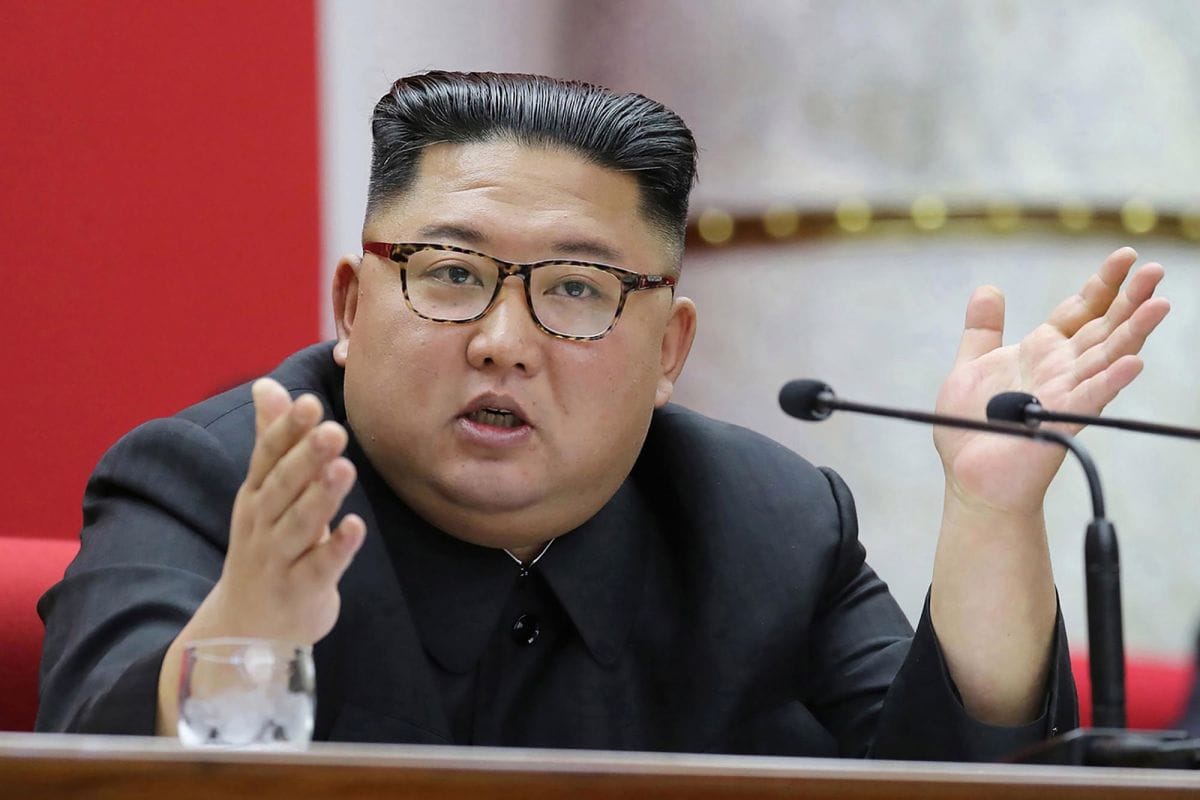As the dust is settling from the fallout of the chaotic withdrawal from Afghanistan, Americans and allies will be conducting after-action reviews to determine what went wrong even as efforts by the State Department and myriad veteran, private, and non-governmental organizations continue to ensure no one is left behind. The revisionist and rogue powers and violent extremist organizations will also be examining what happened to determine what they can exploit in the future. While the U.S. conducts its post-mortem it is important to discern what lessons adversaries will take from the recent events.
Of the five major threats to the U.S., North Korea would seem the least likely to exploit what has taken place. However, to overlook what Kim might do would be a strategic error. Fortunately, Robert Collins has already provided a very important assessment of the likely guidance Kim Jong-un is providing to the Workers Party of Korea and the North Korean People s Army. However, there is one specific area that requires some consideration by policymakers and strategists: How can the Kim family regime support its political warfare strategy by creating the conditions to cause the U.S. to decide to evacuate non-combatants from South Korea?
There is an overarching lesson from the recent Afghanistan situation that both the U.S. and North Korea can draw when it comes to Noncombatant Evacuation Order (NEO) Operations and that is there are two related two imperatives: First is an early decision to execute will increase the chance of a successful evacuation. Second, is that noncombatants must be withdrawn before the military withdraws. In South Korea, NEO operations are complex and require a much greater effort than just took place in Afghanistan. Specifically for Korea, these two imperatives can be translated to mean there must be an early decision to evacuate before the ROK/U.S. combined military forces are engaged in defending South Korea from an attack by the North. While this appears to be a logical and prudent lesson it is one that Kim Jong-un can exploit in ways not generally considered and it can be done without ultimately going to war.
Kim is facing a range of complex domestic problems: defense against COVID, a failed economy, natural disasters, external information influencing unrest among the population, and international sanctions. He is cracking down on the Korean people in the north with draconian population and resources control measures. He has closed the borders with China and Russia as a COVID mitigation measure and this has led to further damage to the already failed economy.
To maintain control inside north Korea it is necessary to ensure the people know they must sacrifice to contribute to defending against the threat. The regime’s consistent propaganda has engrained this into all Koreans in the north. The regime’s strategy toward the ROK/U.S. alliance is a sophisticated political warfare strategy that is based on subversion, coercion/extortion (blackmail diplomacy) and the use of force to dominate the Korean peninsula to ensure regime survival. One of the major lines of effort is to split the ROK/U.S. alliance with the intent to give the North a superior balance of combat power. Based on what happened in Afghanistan, Kim Jong-un may sense a new course of action that will both subvert the South and drive a wedge in the ROK/U.S. alliance as well as ensure the Korean people in the North see the continued threat from the South.
Conducting NEO in South Korea is not only a complex operation, the effects of the decision to conduct it are such that the ROK economy will be significantly weakened as confidence in the security of the ROK is undermined. This will in turn bring great stress on the South Korean political system. Traditionally, the military, which is responsible for NEO execution, will request an early decision so that noncombatants can be moved out of harm’s way and so that dual apportioned military capabilities will be ready to support combat operations when the war commences. The Chief of Mission, who has the responsibility and authority to order the evacuation, will be reluctant to do so too early because if he or she miscalculates it will have severe economic and political consequences for the alliance. However, based on what occurred in Afghanistan Kim may believe that when faced with an increased threat from the North the U.S. may be more likely to conduct a premature evacuation with the attendant consequences. Kim may be willing to present the alliance with the appearance of the road to war to achieve the objectives of undermining the legitimacy of the ROK and damaging the alliance. Once the U.S. makes the decision to conduct NEO and the ROK economy collapses, Kim could deescalate the situation and watch as the ROK blames the U.S. for its potentially severely damaged economy.
Experts may be critical of presenting this scenario, but it is necessary for three reasons. The first is to prevent a failure of imagination which is the cause of significant intelligence failures. The second is to inoculate the Korean and American people from this possible strategy. It is imperative that if Kim does execute such actions that the press, political leaders, and population understand what Kim may be doing and support the decisions of national leaders. The third and most important reason for presenting this is to heed Sun Tzu’s important advice: What is of supreme importance is to attack the enemy’s strategy. By understanding and exposing the potential strategy the alliance can effectively undermine Kim’s efforts and protect the alliance.
David Maxwell, now a 1945 Contributing Editor, is a retired US Army Special Forces Colonel who has spent more than 20 years in Asia. He is the editor of Small Wars Journal and a non-resident senior fellow at the Foundation for Defense of Democracies (FDD). FDD is a Washington, DC-based, nonpartisan research institute focusing on national security and foreign policy.

